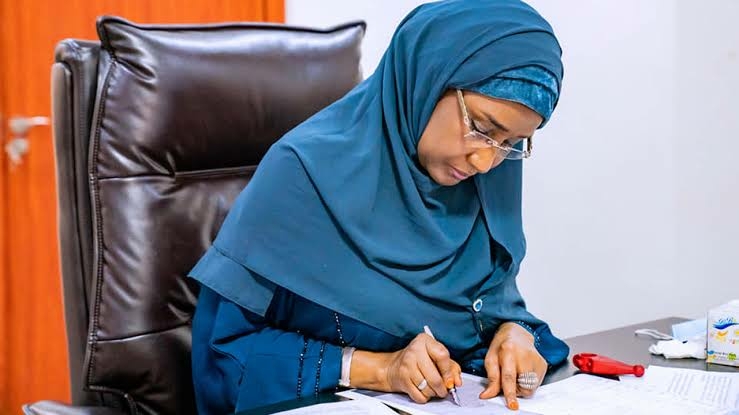The Federal Government has earmarked over N4.6 billion for the N-Skill training, buying of tools and or payment of monthly stipends to the Batch C beneficiaries of the programme.
The Minister of Humanitarian Affairs, Disasters Management and Social Development, Hajia Sadiya Farouq made this known at the closing ceremony of the N-Skill Training on Smartphone repairs and services in Lagos.
The reports revealed that the N-Skill Programme was based on a certification system and accreditation of practical training provided through the informal training system.
Each of the 100 beneficiaries would go home with a rework soldering station (Soldering Iron), a digital multimeter, a set of precision screwdrivers, a repair tool kit and magnifying lamp.
Farouq explained that the fund was a massive direct injection of resources to the youth at the grassroots.
She noted that the graduate and non-graduate components of the N-Power programme had been expanded to provide job opportunities for 12,981 unemployed youths in Lagos state under the Batch C.
The minister added that this followed the successfully exiting of 16,694 youths under Batches A and B.
Farouq noted that the programme demonstrated the commitment to collectively address youth unemployment in line with President Muhammadu Buhari’s deliberate efforts to reduce poverty in Nigeria.
The minister said that while the training accommodated many skills-based enterprises, the Smartphone repairs were used to pilot the programme under the N-Power non-graduate component.
Farouq said the programme was consistent with the national aspiration of lifting 100 million Nigerians out of poverty in 10 years.
She said: “The programme was designed to train, tool and transit marginalised unemployed youths to be gainfully employed.
“The Ministry has worked with technical service providers to provide the N-Skills training services to 6,475 unemployed youths across the federation.
“For you the trainees, over the past six weeks, you have been given the opportunity to: learn and develop competences in smart phone repairs business.
“You have acquired life-long skills that would help you to develop an entrepreneurial understanding of the trade; be responsible citizens, take decisions and effectively manage interpersonal relationships.”
The minister said their participation would change their orientation and prepare them to optimise employment opportunities in the smartphone repairs and service market.
Farouq said that having completed this training, they would be attached directly to Master Craft Persons (MCPs) in the trade for a six-month apprenticeship.
She noted that the MCPs were masters of smartphone repairs who were also trained and certified by the National Board for Technical Education (NBTE), adding that the attachment would enable them to have a work-based learning experience.
According to her, in the six-month attachment period, your performance would be assessed and examined by the NBTE and the National Business and Technical Examination Board (NABTEB).
The minister said this would lead to the issuance of NBTE certificates to those that met the minimum requirements, urging them to work hard to meet the requirements.

















Discussion about this post